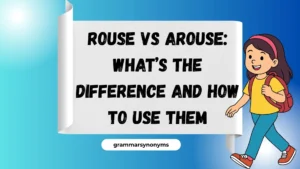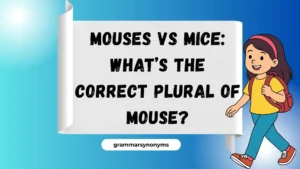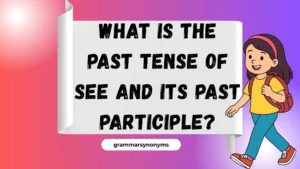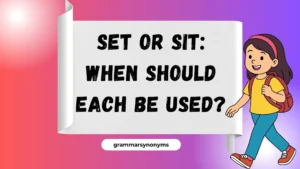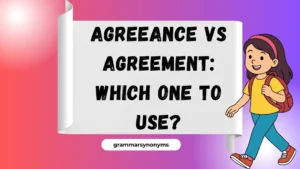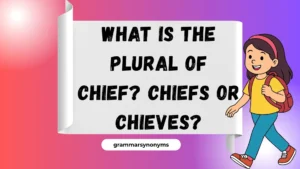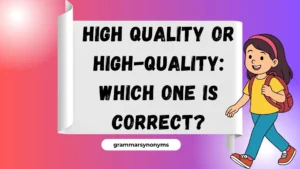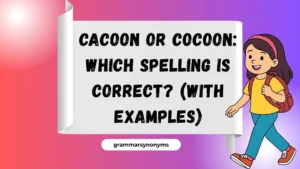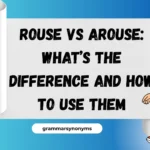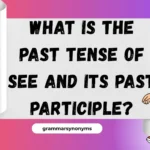Finding the right words to acknowledge a task or commitment can make a message feel more personal, thoughtful, and warm. While “Will do” is a simple and effective response, sometimes you want to express enthusiasm, professionalism, or sincerity in a way that resonates better with your conversation. Here, we explore 30 alternatives to “Will do,” each with explanations and real-life examples to help you communicate in a way that fits the moment best.
What Does “Will Do” Mean?
“Will do” is a casual way of acknowledging a task or request, indicating that the person will complete it. This phrase is often used in informal settings when someone wants to confirm they’ll follow through.
It’s short, efficient, and neutral, making it great for everyday interactions.“Can you send me the report by noon?” Person B: “Will do.”Works well in casual or professional conversations where a quick acknowledgment is enough.
Neutral, efficient, and slightly informal. While useful, “Will do” may sometimes sound too brief or lack warmth, so using alternatives can help convey more enthusiasm or professionalism.
Is It Professional/Polite to Say “Will Do”?
In professional settings, “Will do” can be appropriate in informal emails or team messages but may sound too terse in more formal contexts. For politeness, it’s not inherently rude, but it lacks warmth compared to alternatives like “Absolutely!” or “Happy to help!”
Pros & Cons of Using “Will Do”
Pros:
- Quick and easy
- Neutral and widely understood
- Works well in casual and semi-professional settings
Cons:
- May sound too brief or unenthusiastic
- Lacks warmth and personal touch
- Can seem dismissive in certain situations
Synonyms For ‘Will Do’
- Absolutely!
- Of course!
- No problem!
- Happy to help!
- Got it!
- Consider it done!
- You got it!
- Will do my best!
- On it!
- Sure thing!
- Roger that!
- Okay!
- For sure!
- Done!
- Noted!
- Right away!
- Sure!
- Copy that!
- Leave it to me!
- Aye aye, captain!
- Understood!
- I’m on it!
- No worries!
- Yes, sir/ma’am!
- Understood loud and clear!
- Can do!
- Will take care of it!
- Mark it done!
- Acknowledged!
- Consider it handled!
1. Absolutely!
Definition: A strong and enthusiastic confirmation.
Detailed Explanation: This phrase adds enthusiasm and energy to your acknowledgment, making it ideal for positive and proactive responses.
Scenario Example: Person A: “Can you send the updated draft by 3 PM?” Person B: “Absolutely!”
Best Use: When you want to sound motivated and eager.
Tone: Upbeat, enthusiastic, and confident.
Additional Notes: Great for professional and casual settings when you want to show excitement.
2. Of course!
Definition: A polite and warm way to confirm a task.
Detailed Explanation: This phrase expresses a willingness to help and feels more personal than “Will do.”
Scenario Example: Person A: “Can you double-check the numbers before we submit them?” Person B: “Of course!”
Best Use: When you want to sound supportive and considerate.
Tone: Warm, polite, and friendly.
Additional Notes: Add a touch of kindness to your response.
3. No problem!
Definition: A relaxed and reassuring way to acknowledge a request.
Detailed Explanation: This phrase conveys ease and willingness without making a big deal out of the task.
Scenario Example: Person A: “Can you grab me a coffee when you go?” Person B: “No problem!”
Best Use: When you want to keep things casual and effortless.
Tone: Friendly, relaxed, and informal.
Additional Notes: Best for everyday conversations, but may feel too casual for formal emails.
4. Happy to help!
Definition: A warm and positive way to confirm assistance.
Detailed Explanation: This phrase adds a helpful and cheerful tone, making it great for customer service or teamwork.
Scenario Example: Person A: “Can you send me the presentation slides?” Person B: “Happy to help!”
Best Use: When you want to sound kind and accommodating.
Tone: Friendly, warm, and professional.
Additional Notes: Ideal for work emails and customer interactions.
5. Got it!
Definition: A quick and confident acknowledgment.
Detailed Explanation: This phrase is short and direct, often used when you’ve understood an instruction.
Scenario Example: Person A: “Please update the spreadsheet with the latest data.” Person B: “Got it!”
Best Use: When you want to quickly confirm receipt.
Tone: Crisp, efficient, and slightly informal.
Additional Notes: Works well in team communication but may sound too brief in formal settings.
6. Consider it done!
Definition: A confident way to promise completion.
Detailed Explanation: This phrase adds assurance and reliability, showing that you’re committed to the task.
Scenario Example: Person A: “Can you finalize the report today?” Person B: “Consider it done!”
Best Use: When you want to sound proactive and dependable.
Tone: Assured, confident, and slightly formal.
Additional Notes: Great for demonstrating initiative at work.
7. You got it!
Definition: A friendly and enthusiastic way to confirm a task.
Detailed Explanation: This phrase adds a sense of eagerness and positivity to your acknowledgment.
Scenario Example: Person A: “Can you send me the notes after the meeting?” Person B: “You got it!”
Best Use: When you want to sound upbeat and casual.
Tone: Friendly, warm, and informal.
Additional Notes: Best for casual work chats or friendly exchanges.
8. Will do my best!
Definition: A sincere way to confirm an effort.
Detailed Explanation: This phrase adds humility and sincerity, showing that you will genuinely try to complete the request.
Scenario Example: Person A: “Can you finish this by today?” Person B: “Will do my best!”
Best Use: When you’re unsure if you can guarantee the task but still want to try.
Tone: Honest, considerate, and respectful.
Additional Notes: Works well when managing expectations.
9. On it!
Definition: A quick and energetic confirmation that you’re starting a task.
Detailed Explanation: This phrase is efficient and action-oriented, often used when you want to convey urgency or responsiveness.
Scenario Example: Person A: “Can you email the client with the latest update?” Person B: “On it!”
Best Use: When you need to quickly confirm that you’re starting a task.
Tone: Proactive, energetic, and confident.
Additional Notes: Great for team communication but may be too casual for formal emails.
10. Sure thing!
Definition: A friendly and positive way to confirm a task.
Detailed Explanation: This phrase adds warmth and enthusiasm, making it great for informal settings.
Scenario Example: Person A: “Can you send over the document?” Person B: “Sure thing!”
Best Use: When you want to sound approachable and cooperative.
Tone: Casual, friendly, and enthusiastic.
Additional Notes: Works well in both personal and casual professional conversations.
11. Roger that!
Definition: A confirmation that signals full understanding, often used in technical or military contexts.
Detailed Explanation: This phrase originates from military communication, meaning “Message received and understood.” It adds a sense of firm acknowledgment.
Scenario Example: Person A: “Please verify the server update.” Person B: “Roger that!”
Best Use: When you want to sound clear, direct, and confident.
Tone: Serious, professional, and efficient.
Additional Notes: Best for work settings that require precise communication, like IT or security teams.
12. Okay!
Definition: A neutral and universally understood response.
Detailed Explanation: This phrase is simple and effective, making it a go-to for quick acknowledgments.
Scenario Example: Person A: “Can you update the schedule?” Person B: “Okay!”
Best Use: When you need a straightforward response.
Tone: Neutral and flexible.
Additional Notes: While useful, it may sometimes come across as too plain or unenthusiastic.
13. For sure!
Definition: A casual and friendly way to confirm a request.
Detailed Explanation: This phrase conveys a positive and easygoing attitude.
Scenario Example: Person A: “Can you help me move some boxes?” Person B: “For sure!”
Best Use: When you want to keep things lighthearted and warm.
Tone: Casual, warm, and engaging.
Additional Notes: Best used in personal or informal settings.
14. Done!
Definition: A confident and efficient way to confirm completion.
Detailed Explanation: This phrase eliminates unnecessary words, making it perfect for quick task updates.
Scenario Example: Person A: “Can you submit the report?” Person B: “Done!”
Best Use: When you need to confirm task completion quickly.
Tone: Direct and efficient.
Additional Notes: Great for chat messages but too abrupt for formal emails.
15. Noted!
Definition: A concise acknowledgment of received information.
Detailed Explanation: This phrase is great for showing that you understand and remember instructions.
Scenario Example: Person A: “We need to focus on quality control for the next batch.” Person B: “Noted.”
Best Use: When you want to confirm that you understand without additional comments.
Tone: Professional and serious.
Additional Notes: Best for professional emails or brief work responses.
16. Right away!
Definition: A phrase that conveys urgency and promptness.
Detailed Explanation: This phrase emphasizes that you’re acting on the task immediately.
Scenario Example: Person A: “Can you fix the error in the document?” Person B: “Right away!”
Best Use: When you want to show responsiveness.
Tone: Prompt and professional.
Additional Notes: Useful when quick action is required.
17. Sure!
Definition: A neutral and agreeable way to confirm a task.
Detailed Explanation: This phrase is simple, polite, and versatile, making it work in many situations.
Scenario Example: Person A: “Can you forward the email?” Person B: “Sure!”
Best Use: When you need a straightforward and agreeable response.
Tone: Neutral and polite.
Additional Notes: May sometimes sound too casual in formal settings.
18. Copy that!
Definition: A phrase often used in professional or technical settings to confirm understanding.
Detailed Explanation: This phrase is common in IT, aviation, and security, ensuring clear communication.
Scenario Example: Person A: “The new system update will go live at midnight.” Person B: “Copy that!”
Best Use: When you need to confirm receipt of instructions clearly.
Tone: Professional, direct, and serious.
Additional Notes: Best suited for industries that require precise communication.
19. Leave it to me!
Definition: A confident way to take responsibility for a task.
Detailed Explanation: This phrase reassures the other person that you will handle the task efficiently.
Scenario Example: Person A: “Can you organize the team meeting?” Person B: “Leave it to me!”
Best Use: When you want to sound responsible and dependable.
Tone: Confident and reassuring.
Additional Notes: Great for leadership roles or when you want to take initiative.
20. Aye aye, captain!
Definition: A playful and enthusiastic way to confirm a task.
Detailed Explanation: This phrase comes from naval terminology, adding a humorous and energetic tone.
Scenario Example: Person A: “Can you check the inventory?” Person B: “Aye aye, captain!”
Best Use: When you want to keep things fun and lighthearted.
Tone: Playful and humorous.
Additional Notes: Best used in informal settings with colleagues or friends.
Would you like me to continue with the next 10 alternatives? 😊
21. Understood!
Definition: A clear and professional way to confirm comprehension.
Detailed Explanation: This phrase ensures that you fully grasp the task or request, making it great for serious and professional interactions.
Scenario Example: Person A: “We need to follow the new guidelines for all future reports.” Person B: “Understood!”
Best Use: When you want to confirm clarity and compliance.
Tone: Formal, respectful, and professional.
Additional Notes: Great for workplace communication, especially with managers or clients.
22. I’m on it!
Definition: A proactive and confident way to indicate you are taking action.
Detailed Explanation: This phrase implies urgency and enthusiasm, making it ideal for work environments that require quick responses.
Scenario Example: Person A: “Can you handle this customer complaint?” Person B: “I’m on it!”
Best Use: When you want to show initiative and efficiency.
Tone: Energetic and committed.
Additional Notes: Works well in professional settings where speed and responsibility matter.
23. No worries!
Definition: A relaxed and reassuring way to acknowledge a task.
Detailed Explanation: This phrase conveys that the task is easy or not a problem for you, making it feel more casual and friendly.
Scenario Example: Person A: “Sorry for the last-minute request. Can you handle this?” Person B: “No worries!”
Best Use: When you want to ease concerns and sound approachable.
Tone: Friendly and informal.
Additional Notes: Great for casual workplace interactions but may lack professionalism in formal settings.
24. Yes, sir/ma’am!
Definition: A respectful and formal way to confirm a task.
Detailed Explanation: This phrase is used in highly formal or authoritative settings to show respect.
Scenario Example: Boss: “Please update the financial report by noon.” Employee: “Yes, sir!”
Best Use: When you need to show deference and respect.
Tone: Formal, obedient, and polite.
Additional Notes: Best for military, customer service, or hierarchical workplaces.
25. Understood loud and clear!
Definition: A strong way to confirm full comprehension.
Detailed Explanation: This phrase adds emphasis to show that you not only understand but will act accordingly.
Scenario Example: Person A: “This deadline is critical. We can’t miss it.” Person B: “Understood loud and clear!”
Best Use: When you need to confirm both understanding and commitment.
Tone: Serious, strong, and professional.
Additional Notes: Useful in high-pressure work situations.
26. Can do!
Definition: A positive and confident way to confirm a task.
Detailed Explanation: This phrase adds a motivated and capable tone to your response.
Scenario Example: Person A: “Can you take care of the client’s request?” Person B: “Can do!”
Best Use: When you want to sound upbeat and capable.
Tone: Enthusiastic and informal.
Additional Notes: Works well in casual professional settings.
27. Will take care of it!
Definition: A reassuring way to confirm responsibility for a task.
Detailed Explanation: This phrase assures the other person that you will handle everything efficiently.
Scenario Example: Person A: “Can you finalize the team’s budget?” Person B: “Will take care of it!”
Best Use: When you want to sound reliable and responsible.
Tone: Professional and confident.
Additional Notes: Great for workplace commitments.
28. Mark it done!
Definition: A confident and assertive way to indicate task completion.
Detailed Explanation: This phrase confirms that the task is either finished or will be completed shortly.
Scenario Example: Person A: “We need that report sent today.” Person B: “Mark it done!”
Best Use: When you want to show strong initiative.
Tone: Confident and action-oriented.
Additional Notes: Ideal for leadership or managerial roles.
29. Acknowledged!
Definition: A formal way to confirm receipt of instructions.
Detailed Explanation: This phrase ensures that you understand and accept responsibility for the task.
Scenario Example: Person A: “Ensure that the new safety protocols are followed.” Person B: “Acknowledged.”
Best Use: When you need a professional and clear confirmation.
Tone: Formal and serious.
Additional Notes: Works well in technical, military, or corporate environments.
30. Consider it handled!
Definition: A confident phrase that assures the task will be taken care of.
Detailed Explanation: This phrase instills confidence in the other person, making them feel at ease about the task.
Scenario Example: Person A: “We need to resolve this client issue quickly.” Person B: “Consider it handled!”
Best Use: When you want to convey reliability and competence.
Tone: Strong, professional, and confident.
Additional Notes: Best for senior roles or customer service responses.
Conclusion
Finding the right words to confirm a task can change the tone of your conversation and make interactions feel warmer, more professional, or more engaging. While “Will do” is useful, switching it up adds personality, professionalism, or enthusiasm depending on the situation. By using these alternatives, you can tailor your response to fit the context, audience, and tone you want to convey – whether in a casual chat, professional email, or high-stakes business setting.
FAQs
1. Is it professional to say “Will do” in a workplace setting?
Yes, “Will do” is generally considered professional yet casual. It works well in informal workplace communication, such as emails, chats, or quick verbal responses. However, alternatives like “Consider it done” or “Acknowledged” may be better suited for more formal settings.
2. What’s the best alternative to “Will do” for formal emails?
For formal emails, it’s best to use a more professional and respectful phrase. Some good options include:
- “I will take care of it.”
- “Acknowledged.”
- “Consider it done.”
- “I will handle this promptly.”
These ensure clarity while maintaining a polite and professional tone.
3. Which alternative to “Will do” sounds more enthusiastic?
If you want to add more energy to your response, try:
- “On it!”
- “Absolutely!”
- “You got it!”
- “Can do!”
These phrases sound more motivated and proactive, making them great for team settings and customer service roles.
4. Can “Will do” sound too short or unenthusiastic?
Yes, in some cases, “Will do” might come across as too brief or lacking enthusiasm, especially in text-based communication where the tone isn’t clear. If you want to sound warmer or more engaged, you can use:
- “Sure thing!”
- “Happy to help!”
- “Absolutely!”
These alternatives help convey positivity and willingness.
5. What’s a good response if I want to sound extra responsible?
If you want to assure the other person that you’re fully in charge, use:
- “Leave it to me!”
- “Consider it handled!”
- “I’ll take care of it personally.”
These phrases instill confidence in the person making the request, making them ideal for leadership roles or client-facing situations.
Also Read This:
Scrapped vs. Scraped: Clearing the Confusion Once and for All
Pick-Up, Pick Up, or Pickup: What’s the Correct Usage?
Cancellation vs Cancelation: Which Spelling is Correct?
30 Other Ways to Say “Point of Contact” (With Examples)
30 Other Ways to Say “Please Accept My Apologies” (With Examples)

“Emma Brooke at Grammar Synonyms is your trusted source for mastering the art of language. Whether you’re looking for the perfect synonym, refining your grammar, or searching for that one ideal phrase, we’ve got you covered. With a wealth of tools and resources, Emma Brooke brings you creative solutions for all your writing needs, making sure your words always hit the mark. Unlock a world of language possibilities and elevate your writing with ease.”

